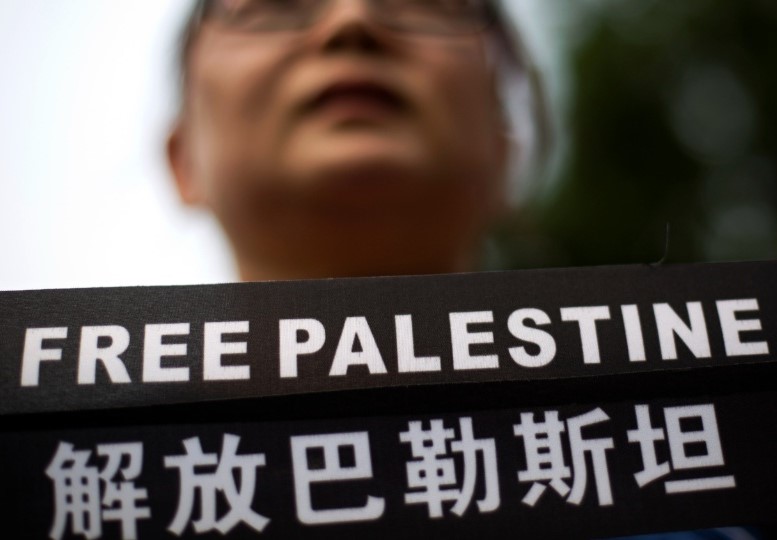By Gunda Pavilonytė, BA Chinese
It has been months since tensions escalated in the longstanding Israel-Palestine conflict on October 7th, becoming a prevalent topic in recent media, dominating headlines and attracting global attention to a struggle that has been simmering for decades.
Beginning in the mid-20th century, it is one of the world’s longest-continuing military and political conflicts, and its severity has sparked shock and outrage amongst the public. The international community has called for a ceasefire, with demonstrations erupting worldwide demanding to prevent further casualties. Western leaders have predominantly expressed strong support for Israel and emphasised its right to self-defence, while countries in the Arab and Muslim world have expressed solidarity for the Palestinian cause, advocating for its people’s rights and statehood.
However, the response from Asian nations has been more diverse. While some support a two-state solution preaching peace and security, others remain neutral, seeking to maintain diplomatic relationships with both parties. However, China has taken a different approach.
‘China has a long history of supporting the fight for Palestinian independence, (…) it was the first non-Arab country to officially recognise May 15 as Nehba Day […and] recognised Palestine as a sovereign and independent state since 1988 with East Jerusalem as its capital.’
China has a long history of supporting the fight for Palestinian independence. Beginning bilateral relations in 1956, it was the first non-Arab country to officially recognise May 15th as Nakba Day. It recognised Palestine as a sovereign and independent state in 1988, with East Jerusalem as its capital, and advocated for the end of the occupation. This persists as the prevailing status quo and focal point of the Chinese government’s agenda.
Mao Zedong, the Chairman of the Chinese Communist Party from 1949 to 1976, when endorsing a foreign policy in support of Third World national liberation movements refused to refer to Hamas as a terrorist organisation, instead calling them the representatives of the Palestinian people. Moreover, he had always condemned Israeli settlements on the West Bank, describing it as a basis of imperialism in the region.
Although China itself was struggling with poverty from the effects of the Cultural Revolution, it provided the Palestine Liberation Organisation with financial and military aid in the 1960s before the Arab-Israeli War.
Recently, videos featuring Zhang Jun, China’s representative to the UN Security Council, have been circulating in the media and gained public attention. It features the Chinese spokesperson interrupting and correcting Israel’s UN representative for his disrespectful remarks. Chinese officials stated that Israel’s actions have “gone beyond self-defence,” and condemned the US veto for a ceasefire, signalling a bold stance in the diplomatic relations between the two nations while advocating for Palestinian interests.
The Palestine-Israel conflict has also caused intense discussions online, with developments in the Middle East closely followed by the Chinese public. Although some are sympathetic towards Israel, most strongly condemn its actions in the Gaza Strip, with some fringe supporters going as far as to create an antisemitic atmosphere. For instance, the Israeli Embassy in China has received so much hateful antisemitic content on the social media platform Weibo, that the website has now closed the comment section.
However, some of the opinions circulating online are suspected to stem from widespread nationalistic anti-US sentiments and China’s persistent backing of the Palestinian cause. Discrediting the US political and moral standing, experts suggest that China is exploiting the conflict to diminish US influence.
Chinese authorities use surveillance technology to closely monitor and censor its citizens, yet content containing hate speech has remained on social media, indicating tacit endorsement by the authorities.
But, whilst supporting the Palestinian people, as part of its approach to establishing itself as a prominent diplomatic influence in the Middle East, China has simultaneously continued to forge diplomatic ties with Israel. Since founding diplomatic relations in 1992, it has become Israel’s third largest trading partner, with the number of imports surpassing the US. It remains a major investor within the hi-tech, infrastructure and construction sectors.
Withdrawal of cooperation from major global players like China could have a meaningful role in halting military operations sooner than intended by putting substantive pressure on Israel. Simultaneously, if China took an approach similar to that of South Africa, it would not only damage its relations with Israel but also have significant consequences for the relationship between China and its Western allies. Thus, it remains pertinent to ask whether China will adopt a stronger stance in challenging the Western hegemony and continue its support for Gaza.
Photo caption: A woman outside the Palestine Embassy in Beijing, China holding a sign both in Chinese and English reading ‘Free Palestine’ during a demonstration against Israeli airstrikes in Gaza. (Photo credit: Andy Wong)
